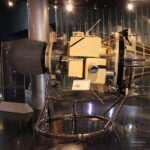ESA’s Voyager 2050 program sets sights on astrobiology exploration
- Europe plans astrobiology mission to Saturn moon Enceladus
- Mission would launch in the 2040s for arrival in the 2050s
- Enceladus has potential for habitable environment
- Mission would consist of an orbiter and a lander
- ESA aims to lead in planetary science with this mission
Europe is planning an astrobiology mission to the Saturn moon Enceladus as part of its Voyager 2050 program. Enceladus, with its potential for a habitable environment, has been recommended as the primary target. The mission would consist of an orbiter and a lander, launching in the 2040s and arriving in the 2050s. The goal is to search for signs of life and gather samples from the moon’s ocean. If successful, this mission would establish ESA’s leadership in planetary science for years to come.
Factuality Level: 8
Factuality Justification: The article provides detailed information about the potential mission to Enceladus, including the scientific goals, recommendations from experts, technological considerations, and comparisons with other moons. It cites sources and includes relevant background information to support the main topic. The article does not contain misleading information, sensationalism, bias, or invalid arguments.
Noise Level: 3
Noise Justification: The article provides detailed information about the potential future mission to Enceladus, including the scientific goals, recommendations, and challenges. It stays on topic and supports its claims with evidence and examples. However, there are some repetitive information and unnecessary details that could be considered noise.
Financial Relevance: No
Financial Markets Impacted: No
Presence Of Extreme Event: No
Nature Of Extreme Event: No
Impact Rating Of The Extreme Event: No
Rating Justification:
Public Companies: European Space Agency (N/A)
Key People: Zita Martins (Chair of the 12-person panel of planetary scientists), Carole Mundell (Director of Science at European Space Agency)
 www.space.com
www.space.com 





